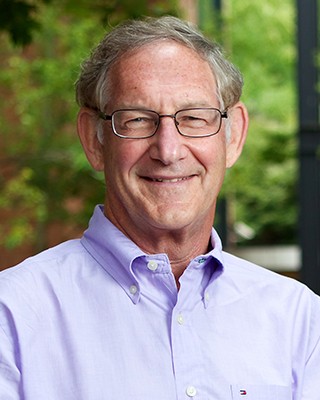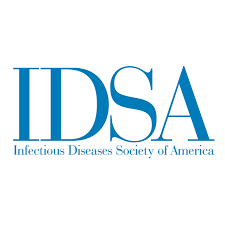

Lawrence Corey receives Alexander Fleming Award for Lifetime Achievement
Dr. Lawrence Corey, professor (Allergy and Infectious Diseases), was honored by his peers for his lifetime achievements against infectious diseases with the 2022 Alexander Fleming Award for Lifetime Achievement from the Infectious Diseases Society of America (IDSA). He was presented with the award by friend and collaborator, Dr. Anthony Fauci.
The Alexander Fleming Award for Lifetime Achievement was created in 1964 in honor of the late Dr. Alexander Fleming, who received the Nobel Prize in 1945 for his discovery of penicillin.
Lawrence Corey, MD, FIDSA, is an internationally renowned expert in virology, immunology and vaccine development. Dr. Corey’s groundbreaking four-decade contributions to infectious diseases include leading work to develop safe and effective antiviral therapies for herpes, HIV, hepatitis and infections in immunocompromised cancer patients. Most recently, he helped speed the development of COVID-19 vaccines.
Dr. Corey is the former president and director emeritus of Fred Hutchinson Cancer Center (known as Fred Hutch) and a professor in Fred Hutch’s Vaccine and Infectious Disease, Clinical Research and Public Health Sciences divisions.
Today’s CDC and WHO treatment guidelines for HSV-2 are still based upon studies designed and conducted by Dr. Corey and his team at the University of Washington in the early 1980s. Dr. Corey directed the group, whose studies were the first to demonstrate the safety and effectiveness of long-term oral antiviral therapy in immunocompetent people.
This work led to the antiviral revolution in treating HIV, hepatitis and respiratory viruses. The team also demonstrated that antiviral therapy could reduce transmission of HIV from mothers to their infants and that HIV-1 replicates in blood early in the disease, emphasizing the importance of early therapy.
During the COVID-19 pandemic, Dr. Corey’s leadership contributed to emergency use authorization of mRNA vaccines within 11 months of starting the first COVID-19 vaccine trials. He developed the conceptual framework for the COVID-19 Prevention Network, the public-private partnership used in nationwide government-funded COVID-19 vaccine trials. Based on the infrastructure Dr. Corey had developed for NIAID’s HIV Vaccine Trials Network, the framework used individually conducted harmonized clinical trials with centralized clinical trial sites and laboratories and a single IRB.
Dr. Corey designed and championed the 30,000-person rapidly enrolling trials, built a national clinical trials program of academic and commercial clinical trial sites, established a national participant registry and developed a community outreach program that successfully enrolled the most affected racial and ethnic minority populations into the trials. Dr. Corey’s vision, persistence, experience and leadership were central to the program’s success.
As a co-founder of the HIV Vaccine Trials Network, based at Fred Hutch, Dr. Corey helped create the world’s largest publicly funded collaboration to develop vaccines for HIV/AIDS. HVTN is made up of more than 80 clinical trial sites in 16 countries on five continents. Known as the model for global, collaborative research, HVTN also includes an outstanding program for engaging the community in HIV prevention and therapy efforts and world-class programs in immunology and computational biology.
When he was president and director of Fred Hutch, Dr. Corey oversaw the development of new immunotherapies to treat cancer, initiated a research and care program on viral associated cancers in Uganda, and improved cancer prevention and early detection and treatment services. He also founded two immunology companies, which highlighted the potential of using immunology to treat and prevent cancer and viral infections.
Dr. Corey’s breadth of knowledge is reflected in more than 850 peer-reviewed published articles (130 of which have been designated as very high impact), 12 books and more than 200 book chapters and editorials. He holds 18 patents and has received continuous NIH funding since 1978.